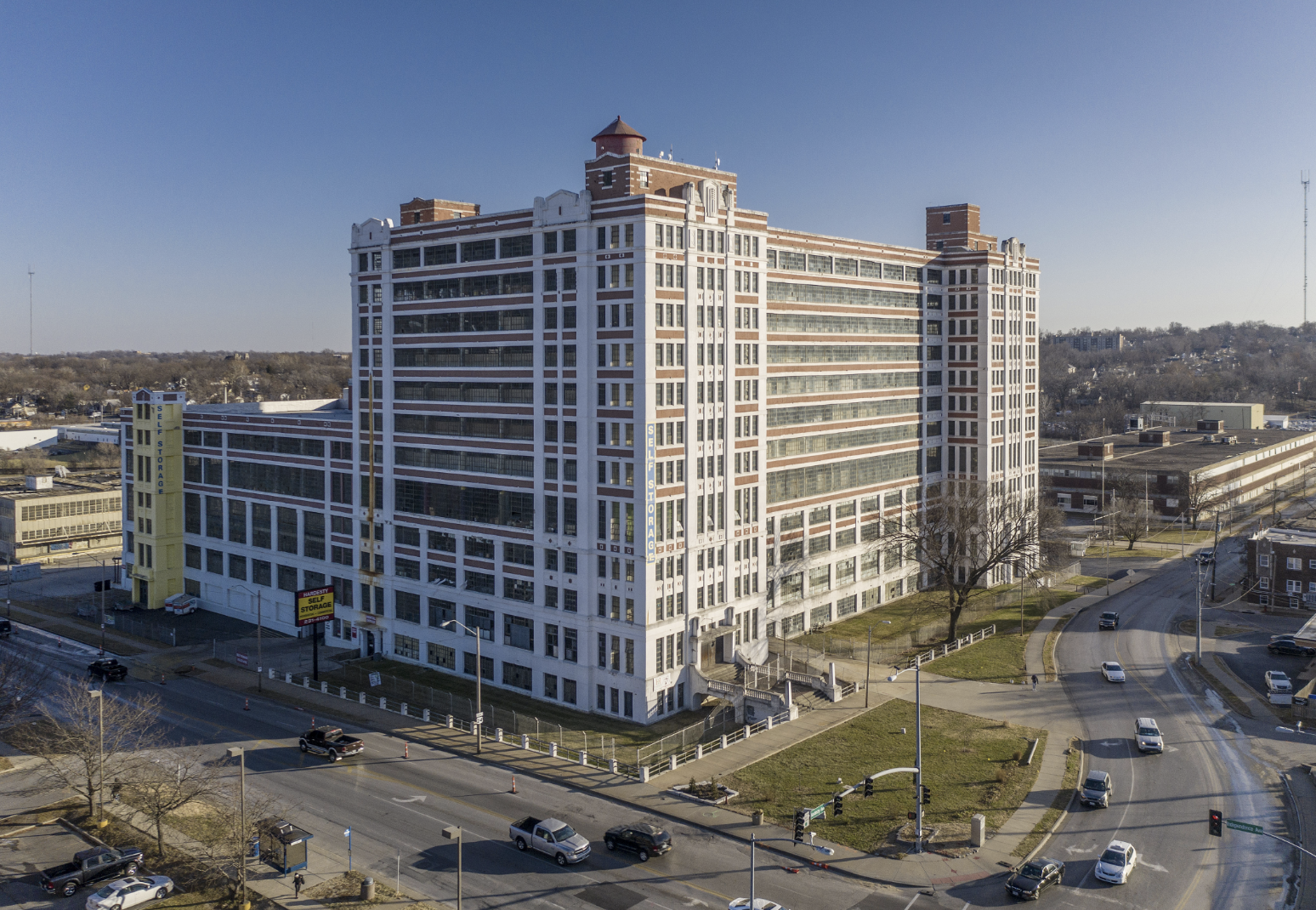By Paul Thompson
Northeast News
Voters in Kansas City, Missouri will have the chance to implement a rental inspection program with real teeth in August of 2018, if they so desire.
Thanks to an initiative petition that garnered more than 2,000 signatures, KCMO residents will have an opportunity to vote on a residential rental inspection program on August 7, 2018. During the KCMO Housing Committee meeting on Wednesday, May 2, a committee substitute for Ordinance No. 180248 was recommended for passage by the full Council.
The initiative petition quickly earned the support of 1st District Councilman Scott Wagner, whose own attempt at implementing a rental inspection ordinance stalled in committee during the summer of 2017.
“When we started this, we really wanted this to be a partnership between the City and the landlord community. We spent a good amount of time – five months – talking to representatives of that community, trying to come up with something that would be not only fair, but would also not necessarily be financially onerous,” Wagner said. “Even when we made those major changes, that still wasn’t enough for those representatives of the landlord community. With that, we couldn’t get anything out of committee.”
The 2,004 signatures validated by the KCMO City Clerk for the initiative petition exceeded the 1,708 required by City Charter to be placed on a municipal election ballot. If approved by KCMO voters, the Healthy Rental Homes Inspection Program would create a $20 annual per rental unit fee for Kansas City landlords. A separate, one-time $20 fee would also be required when submitting an application for a permit. These funds would be utilized to maintain a staff of three or four inspectors tasked with implementing the inspection program.
As written, inspections would be demand-based, but there would also be a random element to the program. One passage from Ordinance No. 180248 instructs the Director of Health to “determine a percentage of random annual routine inspections to be completed based on the total number of permitted rental properties.”
The Director would also be authorized to require future inspections based on past violations, even without a new complaint. Unless a complaint is made by a tenant, however, inspectors would only be allowed to inspect a unit with at least five days notice, or in an emergency situation.
According to Wagner, the inclusion of the random element in the citizen’s petition is the biggest change from the program he championed in 2017. The alteration is one that Wagner enthusiastically supports, saying that it will help to keep landlords honest and deter them from potentially exacting revenge on tenants they suspect called in a complaint.
“It provides a little bit of extra protection, if you will, in the sense that one of the biggest challenges in all of this is this idea that a landlord may have extra leverage against their tenant,” Wagner said. “That may mean that tenants might not call in if they have an issue.”
Importantly, initial inspections would come at no cost to landlords. However, costs begin to multiply if a violation is identified. A re-inspection fee of $150 would be assessed for the first rental requiring a follow-up inspection, while an additional $100 fee would be assessed for every subsequent unit requiring re-inspection. If a permit is suspended for any reason, a re-instatement fee of $300 would apply. Late fees equal to 10% of the amount due per month would apply for fees not paid before the due date.
“Our estimates were always that you could do a permit fee of $20 or $25, do the second inspection fee at $150, and that would allow you to pay for three or four inspectors who could be dedicated to this program,” Wagner said. “At the end of the day, we want to make sure that properties don’t slide, and we want to make sure that if we do have problem landlords that we’re able to focus very much on their properties.”
The committee substitute further states that if any funds remain after program expenses are calculated, 100% of the money will be allocated for “the prevention of childhood lead poisoning and relocation costs for low-income tenants required by the Director to move out of their home due to health or safety threats.”
For landlords, failure to abate violations after three re-inspections would trigger decisive action, including the suspension of a permit, the vacation of a property, and the institution of ordinance violation proceedings through municipal court. Suspension of a permit could also be triggered by non-payment of fees, denying access to the inspectors, violations deemed life-threatening, or if the landlord is violation of the City Code of Ordinances. For more extreme cases, a suspension could be triggered without prior warning or a hearing.
To Wagner, the permit process represents the real teeth of the proposed program.
“If someone just refuses to do the work that’s necessary, or they defer and they keep coming up with excuses, then we hold that permit at the end of it,” Wagner said. “We hold that permit as a last resort, and that ultimately is I think what gives us the teeth to be able to get compliance whenever we find a situation where health issues are clearly going on in the structure.”
If a suspension does occur, landlords must pass a re-inspection before the reinstatement of their permit. Once a written request is submitted, the Director of Health would have three business days to conduct a follow-up inspection.
The very worst violators would face potential revocation of their permits. Offenses great enough to trigger a revocation include the existence of a suspension for more than 90 days, if an assault or repeated interference had been reported by an inspector, or if a permit holder fails or refuses to comply with a suspension order. If a permit is revoked, the landlord would be required to wait six months to even inquire about receiving a new one.
The Healthy Rental Homes Inspection Program would include minimum standards for basic utilities and facilities; ventilation and heating; safety from fire; safe and sanitary maintenance; the registration and permitting of rental properties; and the administration and enforcement costs of the program itself. Still, committee member Quinton Lucas of the 3rd District said that he’d like to see those standards even more specifically defined before officially endorsing the program. In addition, Lucas said he’d like to look at staffing and cost requirements of the program, to ensure that the proposed fees would cover the scope of the work.
“When we build out the bureaucracy, in the event it passes, I want to make sure that we actually do it right,” Lucas said. “That to me is the bigger interest now – how you implement it well. I think that’s going to be an important campaign question, too, and it’s something that we all need to be able to answer.”
That said, Lucas noted that he generally approves of the effort to create a rental inspection program.
“I need to look through it all again, but yeah, in it’s spirit I do,” Lucas said. “I think what we need to make sure of at City Hall is not just that we are doing the inspections, but how we’re going to make sure we’re doing them efficiently, how we’re going to make sure we actually implement the program, etc.”
If passed, there would be exceptions to the rules that guide the inspection program. Exclusions would be granted for housing that is already inspected annually, such as those affiliated with the Department of Housing and Urban Development (HUD), or units managed by non-profit organizations. During the May 2 meeting, representatives from the petitioner’s group approved a change to the program language that would also grant an exemption to housing units “that are only rented for period of less than 30 days.” This exemption would apply to landlords who rent their units through short-term rental platforms like Airbnb. The City passed a separate short-term rental ordinance – with its own inspection guidelines – in February of 2018.
Outside of the exemptions, all rental properties in Kansas City, Missouri will need to be permitted. In addition to owning the property, applicants will be required to give permission to representatives of the Director of Health to access the rental property for inspections; pay all fees associated with the application; and turn in a health and safety inspection report. Any denial of an application would be expected to include a rationale, the actions needed to become compliant, and a description of the applicant’s right to appeal.
An appeal process also applies to the suspension and revocation of a permit. Landlords would have 10 days after the Director’s decision to file an appeal. If an appeal is filed, the Director then has 15 business days to afford the landlord with a hearing, after which a final decision would be made.
To monitor the program, a nine-member Rental Housing Advisory Board would be appointed by the mayor to advise the Director of Health. The board would include a representative from the rental housing industry, a member of academia, a tenant representative, a representative from an area neighborhood association, a representative from the medical community, and two at-large members.
Assuming the program attains the will of Kansas City voters, the program would become effective on September 2, 2018. Permit applications would then be accepted beginning on January 1, 2019. With the August 7 election looming, Kansas City taxpayers will have their chance to weigh in on the inspection program soon enough. For now, Wagner is happy to see the measure getting onto a ballot.
“Clearly, there was a number of people in the community who want this policy to move forward, and took it upon themselves to formulate their petition group, get those signatures and bring this back forward,” Wagner said. “They spent several months assembling those signatures, and so my hat is off to them; they really took ownership of the issue and carried it forward.”



















